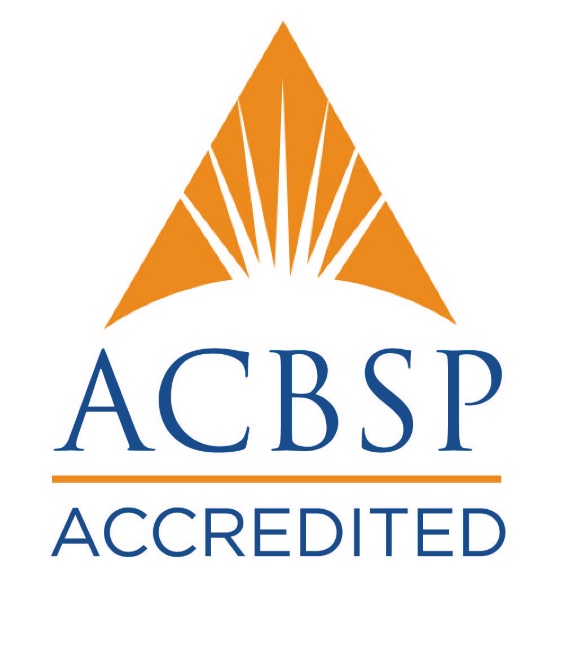The Master of Professional Studies degree is a customizable, fully online graduate degree program in high-demand professional content areas that provides working professionals with targeted choices that fill a need for in-demand credentials desired by employers and prepares you for life and work in a cutting-edge marketplace and an ever-changing world.
The Master of Professional Studies – a 30-credit hour, fully online program – allows learners to select two graduate certificates and create their own customized curriculum relevant to today’s market, their interests and their career goals. The stackable certificate/modular approach is geared toward today’s busy professional who may be looking for a more convenient, flexible and specialized alternative to a traditional MBA program.
How it works
Learners pursue two complementary 12-credit graduate certificates in the content areas of their choice. The remaining 6 credits to complete the master’s degree consist of two core courses: a 3-credit Managerial and Leadership Skills course and a 3-credit Integrated Capstone course. The entire master’s degree can be completed in as few as 12 months on a full-time basis, or at the student’s own pace on a part-time basis.
For example:
Strategic Leadership & Analytics Certificate + Human Resource Management Certificate + 2 Modular Master’s core courses = Master of Science in Strategic Leadership & Analytics and Human Resource Management.
Certificates Available
There are six certificate options currently available to students interested in completing a Master of Professional Studies degree. Upon completion of the two certificates and the two three-credit Modular Master’s core courses, students will graduate with a master’s degree that combines their two chosen content areas.
Dietetic Internship
The Dietetic Internship can be applied toward the Master of Professional Studies degree. Please see the Nutrition Department for details.
Learn more about the Dietetic Internship.
Diversity and Women’s Leadership (Online or Hybrid Format)
This 12-credit graduate certificate provides a distinctive blend of emphasis on workplace gender equity with an emphasis on women’s leadership, cross-cultural challenges and Diversity, Equity and Inclusion (DEI) leadership. Diverse and inclusive organizations not only better serve their employees through ethical workplace hiring and culture, but also offer enhanced performance towards organizational goals.
Learn more about the Diversity and Women’s Leadership Certificate.
Health Care Management (Online)
Through this 12-credit graduate certificate, students will gain an understanding of assessing the service needs of the local population, addressing workforce and supply chain challenges, and assuring compliance with legal and ethical requirements. Managing these crucial success factors can help develop strategic leadership initiatives to successfully position health care organizations for future success.
Learn more about the Health Care Management Certificate.
Human Resource Management (Online)
Effective and ethical use of human resources within an organization is crucial to its success. This 12-credit graduate certificate allows learners from a wide array of career fields to gain the expertise to understand the strategic use of human resources within the organization.
Learn more about the Human Resource Management Certificate
Management Information Systems (Online)
CURRENTLY ONLY AVAILABLE THROUGH DIRECTED STUDY. Management Information Systems are increasingly central to modern businesses and organizations. This 12-credit graduate certificate allows learners from a wide array of career fields to gain the expertise to understand how the strategic use of information creates value for the organization.
Learn more about the Management Information Systems Certificate
Strategic Leadership (Online or Hybrid Format)
This 12-credit graduate certificate provides students with the skills necessary to lead organizations strategically and ethically while considering success factors such as supply chain, organizational right-sizing, market appropriateness and working across international boundaries to achieve business objectives.
Learn more about the Strategic Leadership and Analytics Certificate
Dive A Little Deeper
How To Apply
Ready to apply as a graduate student?

Accreditation

The Cedar Crest College business program is accredited by the Accreditation Council for Business Schools and Programs (ACBSP).
ACBSP Current Graduation Data
ACBSP Historical Graduation Data
Nov. 2019 Report
Faculty & Staff
Who’s teaching you is as important as the curriculum you choose.
Let’s put a face to some of the names you’ll be seeing on the course listings!

Michael Zalot
Chair of Business, Director of the Master of Professional Studies program, and Associate Professor

Scott V. Bartkus
Director of the MBA Program, Assistant Professor
Nina Patel
Assistant Professor of BusinessNina Patel
- Gujarati

Beverly Magda
Founding Director of the Elaine and John Harmon Center
Brigitte Nassar
Administrative AssistantBrigitte Nassar
- Arabic
- English
- School of Adult and Graduate Education
- sage@cedarcrest.edu
- P: 610-740-3770
- Traditional Admissions
- admissions@cedarcrest.edu
- P: 800-360-1222
- F: 610-740-3780
Dietetic Internship Virtual Open House
